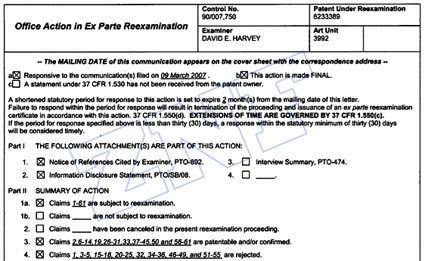 It looks like TiVo, Netflix and Blockbuster will be packing their bags for Massachusetts, after they won the first of many legal scrimmages in their patent defense against Lycos. Lycos has asserted that all three companies have violated patents they own, on âinformation filtering technology.â? The two patents that are at the heart of the case are related to the recommendation services that the companies provide.
It looks like TiVo, Netflix and Blockbuster will be packing their bags for Massachusetts, after they won the first of many legal scrimmages in their patent defense against Lycos. Lycos has asserted that all three companies have violated patents they own, on âinformation filtering technology.â? The two patents that are at the heart of the case are related to the recommendation services that the companies provide.
After Lycos filed their lawsuit against the trio, ChoiceStream (the company that created Blockbusterâs suggestion service) filed a separate lawsuit, to have the patents thrown out.
In their lawsuit against Lycos, they argue that the patents are invalid because of obviousness and prior art. Because Choicestream filed their own lawsuit in the Massachusettsâ court system, TiVo, Netflix and Blockbuster sought to have their case transferred there as well. Iâm not familiar enough with the legal subtleties to know why Lycos originally opposed the motion, but with Lycosâ headquarters in MA, the judge found the request reasonable enough and granted the motion.

 TiVo’s
TiVo’s